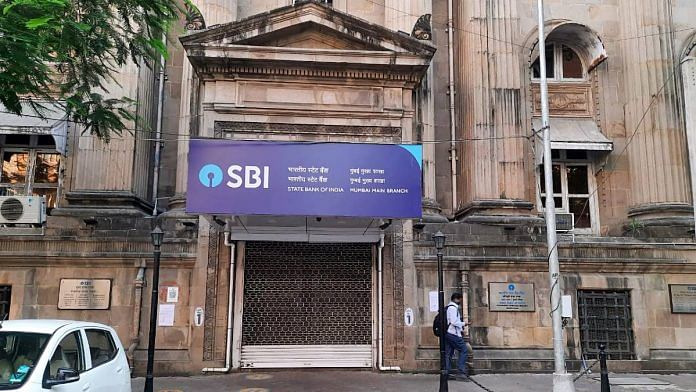Thank you dear subscribers, we are overwhelmed with your response.
Your Turn is a unique section from ThePrint featuring points of view from its subscribers. If you are a subscriber, have a point of view, please send it to us. If not, do subscribe here: https://theprint.in/subscribe/
The recent rigmarole over the electoral bonds is discussed from the political and legal angle by many. I would like to take this discussion ahead from the purview of academics in the banking sphere. State bank of India (SBI) is categorized by the central bank as Domestically Systematically Important Bank (D-SIB). A bank is labelled thus based on its size, interconnectivity, complexity, cross jurisdictional activity and financial infrastructure. SBI carries this burden and the repercussions of its decorum sets a benchmark to the financial system of the economy.
If one of the largest bank of the country, having almost 7 percent market share disobeys the Supreme Court of the country time and again, sets an incorrect precedence for the rest of market players. The bank’s delay in disclosure followed by withholding of information on the electoral bonds in the initial stages, makes me ask the question whether this etiquette is also applicable to the rest of the disclosures. Especially when it comes to the risk reporting materials of the bank.
Bank for International Settlement (BIS) standard 239 deliberates on the practises in bank’s risk reporting and data aggregation percolating to governance and the value of the bank. The standard states that banks data must be accurately recorded with integrity (principle 3), complete in all forms (principle 4) and stored in a timely manner (principle 5). All these principles ensures that the bank adapts to quickly summarizing reports for faster decision making and compliance (principle 6). This is exactly where I dare say that the bank has failed with respect to the bank’s capability of data aggregation.
A systemically important bank due to its size and complexity of products and transactions has more responsibility for data aggregation (principle 8) and tailor the report for the recipient (principle 9). Inspite of the recipient being the Supreme Court of India, SBI’s initial reluctance in submission by asking extension for three months, places the hygiene of maintaining data by the bank in question. Chief Justice of India’s reprimand on the bank’s attitude over incomplete data submission and asking for an affidavit from the CEO, makes me, an academician dejected.
It is important to note that Government of India has over 57 percent stake in the bank. Apart from the reporting mechanism, is in some manner the SBI’s lending also compromised? The BIS principle also states that the data gathered enables a bank to measure its performance against the risk appetite. If a bank’s performance is over estimated, the risk tolerance will be enhanced, encouraging to increase its’ exposure towards riskier assets. The interconnectivity of DSIB will have far reaching implications on the economy due to this over estimation of risk performance.
BIS states that risk management is a combination of quantitative and qualitative factors. It is not just important for a bank to maintain capital for all the parameters as a box ticking activity for disclosures, but compliance is to be truly done in spirit rather than by law. One can only hope that DSIB’s behaviour should not reflect on the data aggregation, reporting and governance of the entire banking industry.
These pieces are being published as they have been received – they have not been edited/fact-checked by ThePrint.

